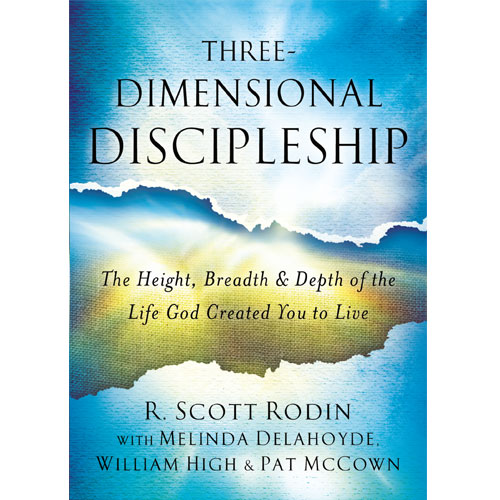Living and Leading in an Age of Anxiety

August 2, 2023
Mark Sayer’s new book, A Non-Anxious Presence, How a Changing and Complex World will Create a Remnant of Renewed Christian Leaders, suggests the that dominant theme in our world and our leadership is anxiety. This anxiety is generated by what he calls the ‘gray zone’ in which we now live and lead. This is a time of confusion and chaos as one era is passing away and the next era is yet to be defined. We are experiencing the deconstruction of the foundations of a culture we once knew, while a host of competing and conflicting ideologies vie to shape the meta-narrative of the new era. It is a messy, disturbing, and contradictory time. And thus, the age of anxiety.
Sayers challenges Christian leaders with a reality check, “The gray zone will be the context in which you live and lead. We must understand it and learn to flourish within it.”[1] After a lengthy assessment of our current situation within this gray zone and some history of how we got here, Sayers brings the discussion around to the way leaders will need to lead if they are to be part of God’s renewal in this time in the wilderness.
For Sayers, the gray zone is a place God can use to shape His people for the future into which He is calling them. The defining characteristic of renewed leaders will be their ability to stand in the chaos of the gray zone and provide a non-anxious presence. This does not mean an aloof or disconnected presence, but leadership that is both fully engaged in the work while remaining quietly confident amid the cultural dystopia that is breeding fear, confusion, disorientation, and anxiety.
The fundamental principle was to remain present within the unhealthy environment while enduring the sabotage, backlash, and undermining that leaders inevitably face when trying to act as non-anxious presences in anxious social systems.[2]
I appreciate Sayers analysis and I agree with his remedy, as far as it goes. I wonder, however, how leaders are to prepare themselves for this demanding role without a fundamental change of heart? How they ’keep their nerve’ as Sayers puts it? I would propose it’s less about knowing the way to lead and more about how we are being prepared for it. Almost nothing in leadership training or teaching in the past 50 years has prepared us for this type of leadership. We can’t just flip a switch. So how do we hope to be this non-anxious presence when the same anxieties of life overwhelm the hearts of leaders, with the added stresses and anxieties of leadership itself.
To this question I return to our understanding of the steward leader vs. the owner leader. As I read Sayers, I could not help but think about how helpful it would be to integrate his understanding of a non-anxious presence with the theology of the steward leader. For unless our hearts are transformed from owners to stewards, our desire to be this non anxious presence may end up as one more tactic or technique that we will try to employ with the hope that it ‘works’. It’s hard to imagine we could do so without that process in and of itself causing us yet more anxiety. However, when a heart is transformed from a two-kingdom, owner mindset to the worldview of a steward of all of life, we are set free to be that non anxious presence as we seek to be faithful to the one who owns, controls, and ultimately redeems all things.
Simply put, until we are at peace in our own spirit, until we fully embrace God’s absolute ownership and our true calling as faithful stewards, we can never provide the non-anxious presence Sayers is proposing. Yet, as faithful steward leaders, his book gives us great encouragement to see how this type of God-confident leadership is exactly what is needed for this gray zone in which we live and lead.
To partner with God as he brings renewal in the world, in the systems and organizations where we live and lead, we must learn to detect his voice before moving forward… Voice recognition is a crucial leadership skill because we must learn to distinguish the voice of God from the evitable anxious voice of the crowd that the leader encounters as they emerge into their leadership… detection and differentiation become easier as we learn to walk in intimacy with God.[3]
In other words, everything begins with intimacy with God. The leader’s ability to hear God’s voice, know God’s voice and distinguish God’s voice amidst the deafening noise of our culture is perhaps the most critical skill of leaders whom God can use to navigate these times. This is the starting point for the journey of the steward leader. Intimacy with God is the first step on the upward spiral that leads to the fullest expression of steward leadership, just as stagnancy in our relationship with Christ starts us on the downward spiral toward leadership failure.
I recommend Sayers assessment and challenge and would offer these comparisons with our steward leader teaching.
Anxious leaders seek to control outcomes in order to assure the prosperity and happiness of the people they lead…
…Steward leaders seek to be faithful to God’s guidance and direction, trusting him for the outcomes and striving toward Kingdom outcomes.
Anxious leaders are attracted to quick fix solutions that offer a rapid exit from conflicts and the avoidance of pain…
…Steward leaders are free to work for systemic solutions, being a source of confidence and resolve to work through conflicts and endure pain as they lead their people through it.
Anxious leaders become easily disoriented by the cacophony of voices looking to them for answers and, as a result, often fall back upon self-reliance to get them through…
…Steward leaders are able to discern God’s voice in and through the people they lead and unify their people toward his vision in the midst of disinformation, confusion, and fear.
After reading Sayers book, I am more convinced that the theology and practice of the steward leader has been raised up for such a time as this. As steward leaders, and as followers of Jesus, are you ready to set aside your ownership tendencies and be a non-anxious presence to all those around you?
[1] Sayers, Mark. A Non-Anxious Presence, How a Changing and Complex World will Create a Remnant of Renewed Christian Leaders. (Chicago: Moody Press, 2022), p. 27.
[2] Sayers, p. 101.
[3] Sayers, pp. 162-163.





